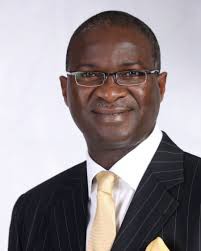Minister of Power, Works and Housing, Mr Babatunde Fashola (SAN), Wednesday disclosed that the Federal government has accessed the $50 million second tranche of the budget support loan from the Africa Development Bank (AfDB) while negotiation is ongoing on $100 million HSBC and $200 million Rand Merchant Bank facilities to fund the completion of its major power projects.
Fashola, who spoke at the hearing of House of Representatives Committee on Power, identified the projects for which the Federal government has set a 2016 deadline, to include the ongoing 3,050MW Mambilla Hydroelectric Power Project and Zungeru 700MW hydroelectric power project.
Other projects include the 215MW Kaduna power project, 10MW Katsina wind farm project and 81 transmission projects.
The government, he said, wants to ensure that available stranded power stations can evacuate their capacity.
The minister, who was represented by the Permanent Secretary in the ministry Louis Edozie, explained that the ministry had proposed N431,637,856,934 for capital projects and N741,900,019 for overheads in the 2016 fiscal year.

To fund the capital component of the budget, Federal government is to provide N99,344,125,696 with an additional N309,722,157,561 by Debt Management Office (DMO) and/or Central Bank of Nigeria (CBN) – to ensure payment assurance for the entire electricity industry – would be obtained from various sources.
He further said that the N2.520 billion meant for specific projects is to be financed through other sources once the TCN wheeling tariff captured in MYTO 2.1 is supported by the liquidity assurance being put in place by NBET.
On the revenue generation for the year, the ministry projected N18,591,126,622 against N7,215,076,122.61 realised in 2015 fiscal year.
A breakdown of the revenue to be generated showed that Nigerian Electricity Regulatory Commission (NERC), a self-accounting agency, is to generate N16,907,215,700.65 in 2016 against N4,846,154,386.55 realised in 2015; Rural Electrification Agency (REA) is to generate N110 million against N12,575,000; NEMSA is to generate N262,185,921 against N104,076,736.06; NBET is to generate N1.009 billion against N1.950 billion.
From the total sum of N1,115,480,907 approved for capital expenditure in 2015, the sum of N557,740,453.50 was released by the federal government, while from the total sum of N5.130 billion approved for capital expenditure for the ministry, departments and agencies, like REA, NERC, EMSL, NAPTIN, NELMCO, TCN and NBET, only N3,114,130,411.12 was released, leaving shortfall of over N2 billion.
Following the outcry over the newly introduced tariff regime by Electricity Distribution Companies (DISCOs), the acting Chairman of NERC Tony Akah, Wednesday insisted that the new price regime would provide the companies with much-needed funds to provide quality services.
Akah, who spoke with journalists on the sidelines of the budget defence hearing of the Ministry of Power and its agencies at the House of Representatives, said the recently introduced tariff regime formed part a performance contract the Commission signed with the DISCOs.
The NERC boss explained that under the new performance contract, DISCOs must provide transformers, meters, electric poles and other basic equipment needed to ensure that customers enjoy quality service.
He disclosed that with the responsibility of providing meters for the consumers now fully placed on DISCOs, the companies would have to expedite action on supplying customers, adding that un-metered individuals presented with ‘crazy’ bills now had the latitude to reject them.
“One of principal mechanisms in the performance contract that is very effective is that DISCOs must meter all customers, and the failure to do this gives the consumer the power,” he said.
“Consumers have the power that they cannot be disconnected and they can reject a bill if they feel that, as an un-metered consumer, they have been given a crazy bill that is grossly unrealistic. They can say no and pay the amount on the last bill they agreed to pay, pending the resolution of the distributed bill.”
Akah stated that those willing to pay under a pilot scheme introduced by government and the DISCOs would be provided with a meter within six months, while DISCOs are expected to supply meters within 12 months to those who are not interested in the scheme.
-Leadership


